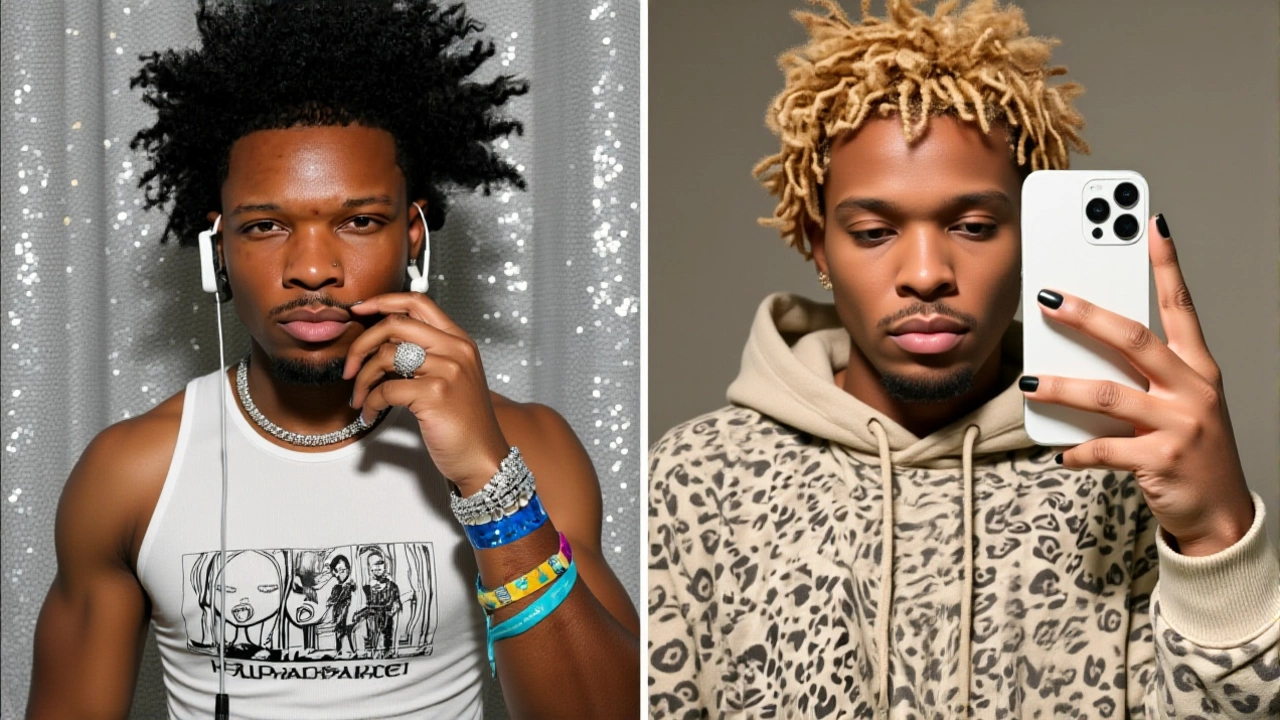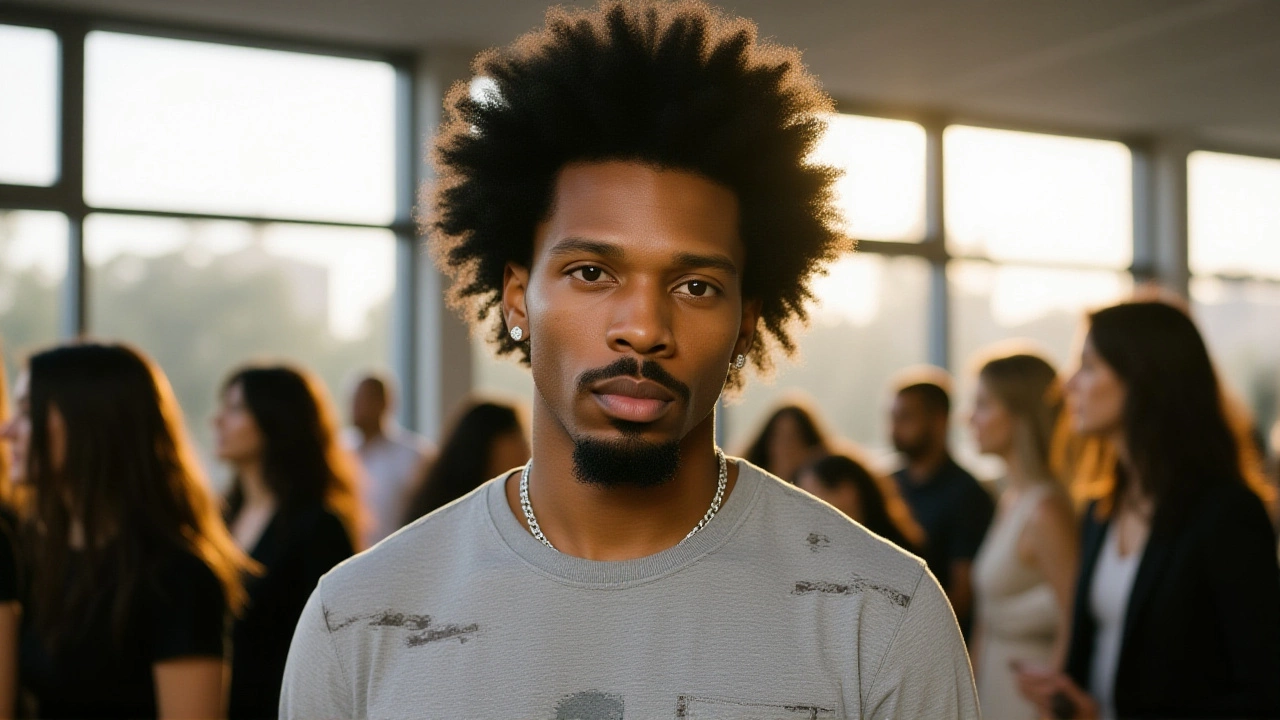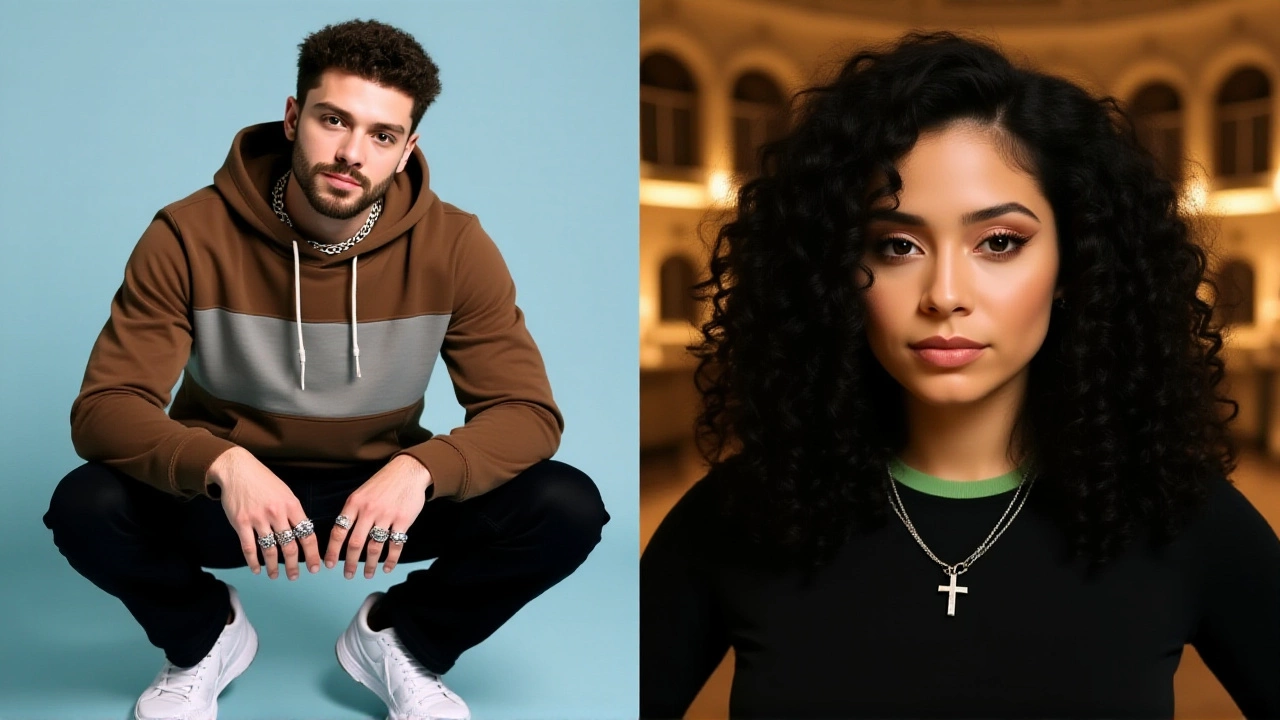When the decomposed body of 15-year-old Celeste Rivas Hernandez was found in a Tesla parked in the Hollywood Hills on September 8, 2025, few could have guessed the case would unravel into a chilling digital mystery. The vehicle, registered to singer-songwriter David Antony Burke, known professionally as D4vd, became the grim epicenter of a national reckoning over art, exploitation, and the blurred lines between fiction and reality. The Los Angeles County Medical Examiner confirmed her identity on September 17, 2025—nearly five months after she was last seen alive. What followed wasn’t just an investigation. It was an online autopsy of a pop star’s catalog.
The Song That Started It All
Fans didn’t wait for police to act. Within hours of the body’s discovery, Reddit threads exploded with audio comparisons. At the heart of the frenzy was 'I'm Waiting' by D4vd and BoFi, released on July 28, 2022. The track opens with a child’s voice: “Alright, I’m waiting, I’m waiting. Tic-tock, tic...tock. hahaha.” It ends the same way. The laugh? Unmistakable. The cadence? Familiar. According to users who had followed Celeste’s TikTok accounts before she disappeared, those were her exact vocal tics—the way she stretched out “waiting,” the way she giggled after saying “tic-tock.”It wasn’t just one track. In December 2023, a leaked demo surfaced titled Celeste_Demo_unfin. Lines like “Oh, Celeste / The girl with my name tattooed on her chest” and “I hear her voice each time I take a breath” sent shivers through fans who’d already been disturbed by his 2022 hit “Romantic Homicide.” The timing was too precise. The demo came eight days after that song dropped. Celeste was still alive then—13 years old, living in Lake Elsinore, running away from home, posting selfies with her curly hair tucked under beanies.
Images, Tattoos, and Digital Clues
The LAPD hasn’t released many details. But the internet has. A screenshot from a private DM surfaced where D4vd allegedly typed: “You are a fed.” When asked about a girl in the background of a photo. Another image showed him taking a selfie with a girl whose face was obscured by a Louis Vuitton purse—only her eyebrows and curls visible. Multiple users on Cockatoo.com and Reddit identified the hair pattern as Celeste’s.Then there were the tattoos. According to reports, both D4vd and Celeste had matching ink: a small musical note behind the ear. The claim came from a source close to the investigation, though police haven’t confirmed it. Instagram reels circulated showing D4vd kneeling, cleaning the shoes of a girl in a Gap sweater—the same brand Celeste was last seen wearing in a photo from March 2024. TMZ published stills from a livestream where a girl says, “Is it controversial of you kids?” The audio is muffled. The girl’s hair? Curly. The timing? After she went missing.
Not all of it holds up. A viral clip of them shopping at a mall near Hello Kitty stands? Debunked. A photo of them at a diner? Misidentified. But the pattern? Too consistent. And the voice—still echoing in the songs.

Why This Matters Beyond the Music
This isn’t just about a song. It’s about how artists mine real trauma for aesthetic. D4vd’s music thrives on vulnerability—loneliness, obsession, whispered confessions. But what happens when the voice you’re sampling belongs to someone who never consented? When the “fictional scenario” you describe online—like the one fans say he posted about “love and cannibalism”—turns out to be chillingly literal?“We’ve seen this before,” says Dr. Elena Ruiz, a digital forensics expert at UCLA. “Artists use found audio all the time—phone recordings, voicemails, street noise. But sampling a child’s voice without permission, especially when that child later disappears under suspicious circumstances? That crosses a line from artistic license into moral violation. And if the voice was recorded without consent? That’s a legal nightmare.”
Authorities have yet to charge anyone. As of late September 2025, a Rotten Mango YouTube analysis—viewed nearly 4 million times—summed it up bluntly: “Zero conviction. Zero arrest. Zero anything.” The LAPD has confirmed the homicide investigation is active but declined to comment on the music or digital evidence. Forensic results on the cause of death are pending, expected in early November.

What’s Next? The Catalog Under the Microscope
Fans are now combing through every D4vd track since 2021. Is that faint whisper in “Take Me To the Sun” at 1:40? Her voice? Or just autotune? Could the interlude in “Invisible String”—where a voice says, “I love you, I love you” and no one answers—be a ghost note from a real conversation?Music producers say it’s technically possible to isolate and match vocal fingerprints, but it requires high-quality source material. Celeste’s TikTok clips are low-res. But if investigators can find a clean recording—say, from a school talent show or a family video—they might be able to run a spectral analysis. If the voice in “I’m Waiting” matches, it could become key evidence in proving premeditation—or worse, long-term abuse.
The case has reignited debates about child safety online, the ethics of AI voice cloning, and whether social media platforms should be liable for hosting content that could be used to groom minors. D4vd’s label, Interscope Records, has suspended all promotional activity. His social media remains silent.
Meanwhile, Celeste’s family has not spoken publicly. But neighbors in Lake Elsinore say she was quiet, bright, loved anime and old-school pop. She drew hearts in her notebooks. She wrote poetry. And according to one teacher, she once told her class: “I wish someone would write a song about me. Not sad. Just… real.”
Frequently Asked Questions
Could D4vd have legally used Celeste Rivas’ voice in his music?
No—not without written consent, especially since she was a minor. Even if she had verbally agreed to be recorded, California law requires parental consent for minors’ voices to be used commercially. There’s no evidence D4vd obtained any such permission. If forensic analysis confirms the voice is hers, it could lead to charges of unlawful use of a minor’s likeness, in addition to homicide.
Why is the LAPD being so quiet about the music evidence?
Law enforcement typically avoids commenting on digital evidence until it’s been forensically verified to prevent contamination of the case or public panic. They’re likely waiting on audio forensics, metadata from D4vd’s devices, and cell tower data to map Celeste’s movements. Rushing statements could jeopardize prosecution.
Are other artists being investigated for similar behavior?
No public investigations have been announced, but the case has prompted the Recording Academy to review its ethical guidelines for sampling. Some producers say they’ve started requiring signed affidavits for any voice recordings involving minors—even ambient sounds. This case could set a precedent for how the industry handles archival audio of children.
What’s the likelihood of charges being filed?
If the voice sample is confirmed as Celeste’s and if investigators can prove the recordings were made while she was alive and without consent, charges could include child exploitation, unlawful recording, and possibly accessory to homicide. The leaked lyrics referencing her name and tattoos also strengthen the case for premeditation. Legal experts say a conviction is possible if digital evidence is properly preserved.
Has D4vd ever addressed these allegations?
No. D4vd has not made any public statements since September 8, 2025. His social media accounts have been deactivated. His last post was a cryptic image of a closed door with the caption “I’m waiting.” Fans have since turned it into a memorial. His legal team has not responded to requests for comment from major outlets.
What can fans do to support Celeste’s family?
The family has not established a public fund, but the Los Angeles County Office of Victim Services is accepting donations in Celeste’s name to support youth runaway prevention programs. Many fans have organized quiet memorials—posting her favorite songs without commentary, lighting candles, or sharing her poetry. Silence, in this case, has become the most respectful form of advocacy.
